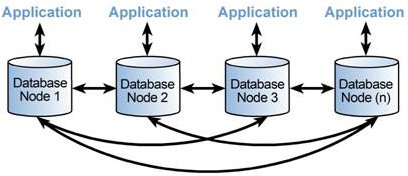In-memory database released in clustering version
Jul 20, 2011 — by Eric Brown — from the LinuxDevices Archive — 5 viewsMcObject announced a clustering version of its Linux-compatible, in-memory ExtremeDB database management system, said to support distributed embedded as well as real-time enterprise applications. ExtremeDB Cluster manages data stores across multiple hardware nodes, thereby increasing net processing power for data management, reducing expansion costs, and increasing scalability for data-intensive real-time applications, the company claims.
Based on ExtremeDB, (see farther below) ExtremeDB Cluster was designed in response to input from customers in telecom/networking, financial trading, software-as-a-service (SaaS), and web services/hosted solution industries, says McObject. Customers were said to have asked for a small-footprint database system that offers optimized performance in distributed applications. McObject's ExtremeDB Cluster benchmarks show 161 percent throughput improvement when scaled from one to four nodes, claims the company.

ExtremeDB Cluster conceptual diagram
The software is claimed to be less complex than competing clustering solutions from relational database management system (RDBMS) vendors. For example, because management is handled within a config file provided by the user, there's no need for a management server or client, says McObject.
Distributing the system across multiple hosts ensures continuous availability in the event of a failure, says McObject. Each node can reside on low-cost commodity hardware, and there's no need to rely on a shared SAN (storage area network) or another storage resource.
Relevant features borrowed from the flagship ExtremeDB include support for ACID transactions, "making it an attractive choice for applications that demand integrity of distributed data," says McObject. The Cluster version also also makes use of ExtremeDB's Multi-Version Concurrency Control (MVCC) transaction management, which eliminates database locking, thereby improving performance and scalability in multi-threaded applications running on multi-core processors, claims the company.
The new clustering version is compatible with all the versions of ExtremeDB, a tiny, approximately 150KB sized data manager said to make minimal CPU demands. The Linux-compatible software is aimed at both embedded and real-time transaction processing applications, and supports transactions, concurrent access, and a high-level data definition language.
ExtremeDB 4.1, which shipped in May 2010, added CRC and RC4 encryption, faster on-disk storage and retrieval, a binary scheme option, support for custom collations, and improved transaction logging. In March of this year, McObject announced a design win with Airspan Networks, which is using ExtremeDB for its Air4G 4G base station. This was followed in May with a design win from Patton Electronics, which integrated the database in its Linux-based Trinity AE distribution to manage configuration data on its IPLink IP routers and SmartNode VoIP routers.
Stated McObject CEO Steve Graves, "ExtremeDB Cluster adds an important new capability by enabling two or more servers to share the workload, eliminating any ceiling imposed by being CPU-bound on a single server."
Availability
ExtremeDB Cluster is available now, at an undisclosed price, says McObject. A bit more information may be found in this ExtremeDB Cluster announcement.
This article was originally published on LinuxDevices.com and has been donated to the open source community by QuinStreet Inc. Please visit LinuxToday.com for up-to-date news and articles about Linux and open source.